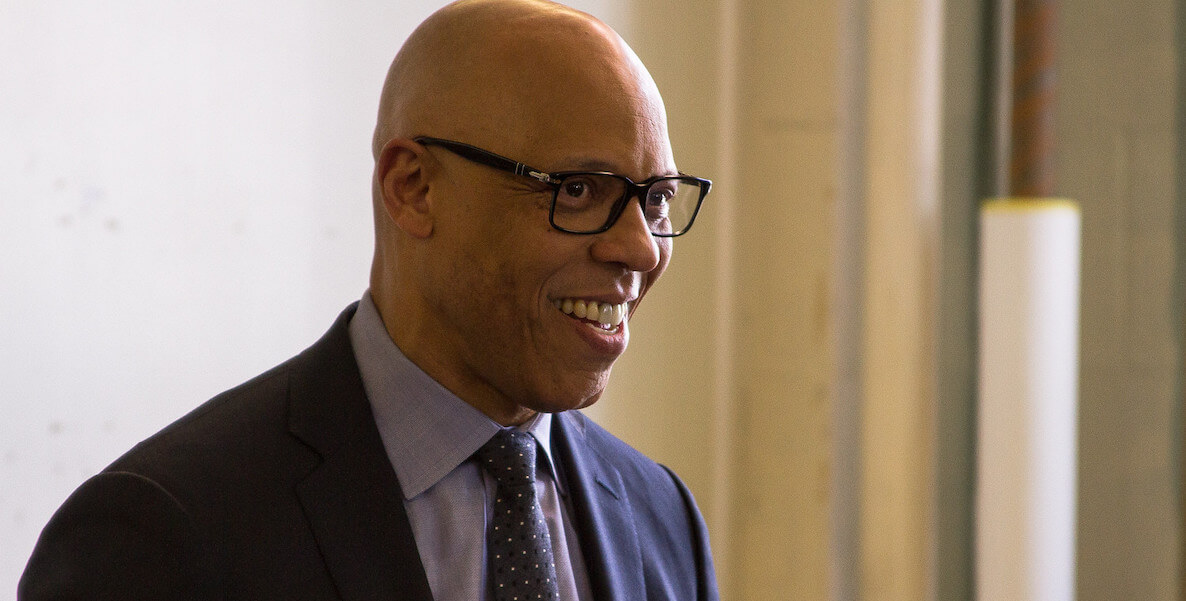A few weeks ago, as the new school year got underway, I wrote a piece raging against the shoddy management that greeted students and parents as they headed back after 18 months of virtual learning. It was, I suggested, well past time to change the way school leaders operate the district, to serve their students, families and staff.
Little did I know that change was already afoot. Hite announced this week he plans to leave the district after nine years, prompting a nationwide search for his replacement this fall and winter.
This is a pivotal moment in our city. School superintendent is arguably the most important job in Philadelphia, and finding Hite’s replacement is definitely the most important job so far of the new(ish) school board. Anyone who takes this job, especially at this time, has an insane challenge ahead of them. On top of the crisis of unhealthy buildings, uneven quality, and pre-pandemic lagging academic achievement in a district where some 80 percent of students are living in poverty, there is the additional challenges that stem from Covid-19—staffing shortages, pandemic-related learning loss, mental health challenges, and more.
“We have come a long way since I joined the School District of Philadelphia in 2012,” said Hite. “But, I’m the first to say, there is still a tremendous amount of work to be done.”
As Hite himself put it during a press conference on Tuesday: “We have come a long way since I joined the School District of Philadelphia in 2012. But, I’m the first to say, there is still a tremendous amount of work to be done.”
Hite is leaving what may be the hardest job in Philadelphia. In part, this is why Mark Gleason, former Philadelphia Schools Partnership head and now a partner with education reform organization The Drexel Fund, suggests the question we ask shouldn’t be “who” should replace Hite—but “what” the district should even look like.
“The structure of the School District has looked unmanageable for a long time,” Gleason says. “Let’s start with what a more manageable structure could look like. I would like to see the Board consider establishing an ecosystem of more manageable chunks, and then identify several great leaders, rather than indulge in a search for a knight in shining armor.”
For now anyway, that doesn’t seem to be in the cards. At a press conference on Tuesday, School Board President Joyce Wilkerson said they will immediately begin their search for a replacement with a citywide listening tour, 17 sessions in 18 days, in every Councilmanic district and via Zoom, to hear from families what they see as the biggest needs for the district. They will hire a search firm to help identify and vet candidates. Then, in mid-winter, they’ll send five finalists to an 11-member advisory panel consisting of a teacher; principal; two guardians; two students; and leaders from charter schools, colleges, business, labor and education advocacy.
The plan is to announce a new superintendent before the end of the school year.
Hite was asked Tuesday what his successor would need to succeed in the job. He had three suggestions:
-
-
- You have to love children, be driven by what they’re capable of accomplishing and hold on to that despite whatever adult criticism comes your way.
- You have to love Philadelphia, with everything that’s good and not so good—advice he says then-Councilmember Jim Kenney gave him when he was first hired.
- You have to be able to establish relationships at the local, state and federal level.
-
It’s telling that what he didn’t include was what’s been missing, and what the school board faulted him on in his review last year: The ability to manage an organizational behemoth well.
Wilkerson, for her part, added another qualification: “Someone who can move the needle for students on achievement.”
It’s this, more than anything else, that makes this an opportunity for Philadelphia. We now have an opportunity to put at the helm of the district not just a leader who can rally all of us to the cause of better educating our children, and who can manage the operation like children and families are precious customers—but also someone who can lead the charge towards the kind of academic outcomes that our children and our city desperately need.
Here, some ideas of people who might be the new school leaders Philly needs—including some long shots—from experienced superintendents, to academic turnaround experts, to business leaders with the management chops the district needs now.
Heidi Ramirez
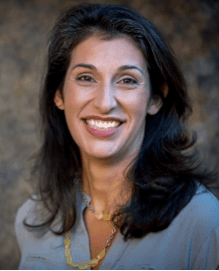
Here’s an idea: How about we get a leader whose focus throughout her career has been on academics? That’s what we would get with Ramirez, an education consultant, who had successful runs as Chief Academic Officer in Milwaukee and Memphis, where in both cities she oversaw dramatic improvements in attendance, graduation rate and student learning.
Those positions followed a short-lived tenure on Philly’s School Reform Commission where she proved the most vocal (and prescient) doubter of then-Superintendent Arlene Ackerman’s vision for Philly schools. As she made clear then, Ramirez has the sharpness, the passion and the precision that leading a district of 120,000 students requires.
Academic achievement is her guiding light—she says the key to turning around a school system is a laser-like focus on “teaching, learning and student outcome,” which fits with the School Board’s new focus on Goals and Guardrails—and she has a compelling buoyancy that would be a nice contrast to Hite’s cool calm over the last decade. As she said in a Citizen Speaks event over the summer, Ramirez is wary of innovation for innovation’s sake; rather, she has found success with an approach to academic outcomes that relies on best practices systematically applied.
“Curriculum matters,” Ramirez said. “We don’t talk about teaching and learning as a cultural shift.” But, she notes, it is.
Paymon Rouhanifard
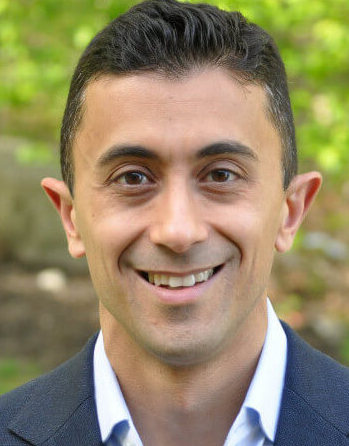 Rouhanifard was just 32 years old when he was appointed head of Camden Public Schools just as the district was controversially taken over by the state in 2013. An Iranian refugee, Rouhanifard was an outsider who (mostly) won over skeptics by successfully achieving his goal, in five years, of creating “fewer, better schools,” as he told The New York Times when he announced his departure in 2018. Notably, many of those schools were charters, which educated 55 percent of Camden children when he left. But those charters? Thanks to a state law, they were mostly Renaissance schools, admitting students from the surrounding neighborhood; responsible for renovating the most dilapidated buildings in the city; keeping the local janitorial staff; and even serving a higher percentage of special education students than traditional schools. By the time Rouhanifard left to launch educational nonprofit Propel America Camden had started to see higher graduation rates, stronger academic proficiency, fewer suspensions and more functioning facilities. (Though there is still work to be done.)
Rouhanifard was just 32 years old when he was appointed head of Camden Public Schools just as the district was controversially taken over by the state in 2013. An Iranian refugee, Rouhanifard was an outsider who (mostly) won over skeptics by successfully achieving his goal, in five years, of creating “fewer, better schools,” as he told The New York Times when he announced his departure in 2018. Notably, many of those schools were charters, which educated 55 percent of Camden children when he left. But those charters? Thanks to a state law, they were mostly Renaissance schools, admitting students from the surrounding neighborhood; responsible for renovating the most dilapidated buildings in the city; keeping the local janitorial staff; and even serving a higher percentage of special education students than traditional schools. By the time Rouhanifard left to launch educational nonprofit Propel America Camden had started to see higher graduation rates, stronger academic proficiency, fewer suspensions and more functioning facilities. (Though there is still work to be done.)
Alberto M. Carvalho
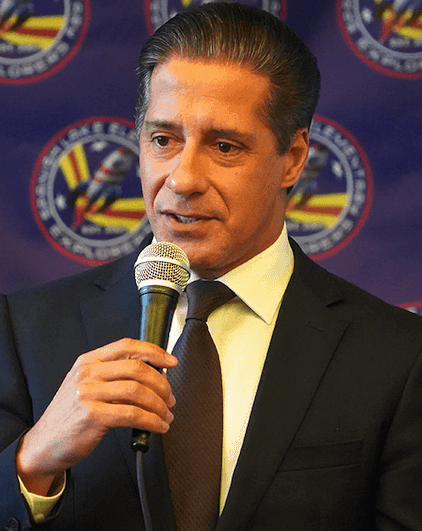
The Miami-Dade County Public Schools superintendent is a superstar, so beloved by the families in Miami (where he has spent his whole career) that he reneged on his dream job—chancellor of New York City schools, the nation’s largest district—after listening to Miamians heap praise on him and bemoan his departure for weeks. And with good reason: Under his leadership, as this Financial Times article notes, he oversaw Miami’s graduation rate jumping from 59 percent to 90 percent; created financial stability that did not impact learning or taxpayers; and embraced competition with a diverse selection of more than 1,000 choice schools, including magnets, charters, career academies and single-gender schools.
All that has paid off, to make Miami-Dade one of, if not the, best large urban school districts in the country—despite demographics comparable to Philly. Miami-Dade, Carvalho has said, is “that impossible district with high poverty and diversity where these things should not happen. But they have happened, and I contend to you, if we were able to do it in Miami-Dade, there is no reason as to why this miracle story cannot be replicated across America.”
Cynthia Figueroa
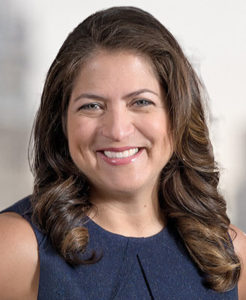
As head of Mayor Kenney’s two-year-old Department of Children and Families, Figueroa already spends her days working to better the lives of Philadelphia children. From her perch in the Mayor’s office, Figueroa oversees over 1,500 employees, coordinating among several departments and programs: Department of Human Services; pre-K; community schools; and what’s called “prevention support services”—after school programs, workforce development, summer meals and anti-truancy efforts. That work has put her in a unique position to understand wholistically the needs of Philadelphia children, something schools increasingly have to address in order to be successful.
Figueroa’s career has ping-ponged between government and nonprofits—she worked for Congreso de Latinos Unidas and led Women Against Abuse, before Kenney appointed her to run DHS in his first term. She approaches her work with a sense of optimism about Philadelphia and even its poorest neighborhoods—but also with an urgency about the pressing issues for our city’s children.
“We need to move the needle on the quality of life for children and families in Philadelphia,” Figueroa said in The Citizen in 2020. “What are the ways we can do that? How do we create more equity in the experience families have? What can we do to change the trajectory of children living in poverty?”
Richard Gordon
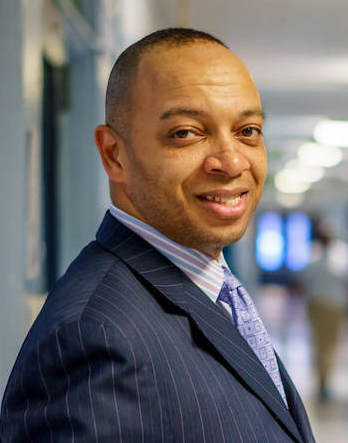
“Build Your Own Brand.” That’s the motto Gordon has instilled as principal of Paul Robeson High School for Human Services since 2013, when he took the helm as it was on the verge of being shuttered by the District. Gordon, who spent two years in the SDP’s office of alternative education, last year was named Principal of the Year by the National Association of Secondary School Principals, and The Citizen’s inaugural Integrity Icon.
His tenure has been nothing short of remarkable, a reflection of his own tremendous vision and leadership: He rebuilt the school culture from the top down; created partnerships with nearby universities and hospitals in West Philly; meets with every student to create a pathway around their interests, then connects them with internships, mentoring and out-of-school training programs; put mental health front and center, even before the Covid-related psychological crisis; instituted 1:1 technology years before Covid, which put Robeson ahead of the curve last year.
The result: Truancy fell by nearly 23 percent, school suspensions below 5 percent—and, importantly, graduation rates are now averaging 95 percent, with 50 percent of students going to college and another 50 percent going to the military or into the workforce. Can you imagine that citywide?
John Fry
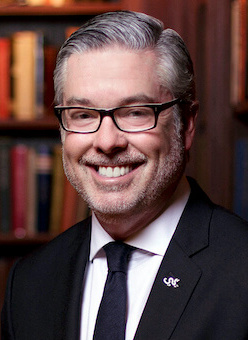 Drexel University’s president has indicated he plans to leave the institution he has led since 2010, which would free him up for the job of leading another mammoth educational institution with even more importance for the city of Philadelphia. Running Drexel—and before that, Franklin & Marshall College—may be the best training Fry needs for the school district job: A school in and of the city, Drexel requires Fry balance competing interests on and off campus; work towards equity and inclusion for students and citizens; manage academic departments, a healthcare system, student and faculty demands—and ensure his graduates are prepared for lives and careers when they leave.
Drexel University’s president has indicated he plans to leave the institution he has led since 2010, which would free him up for the job of leading another mammoth educational institution with even more importance for the city of Philadelphia. Running Drexel—and before that, Franklin & Marshall College—may be the best training Fry needs for the school district job: A school in and of the city, Drexel requires Fry balance competing interests on and off campus; work towards equity and inclusion for students and citizens; manage academic departments, a healthcare system, student and faculty demands—and ensure his graduates are prepared for lives and careers when they leave.
Fry is also, as Citizen co-founder Larry Platt has said, a “true communitarian—the political philosophy made popular in the 1990s that is all about finally bringing to life the Latin phrase on our currency, e pluribus unum: Out of the many, one. He’s baked into Drexel a philosophy of civic engagement, turning it into one of the nation’s most preeminent universities when it comes to playing a role in its city beyond the comfortable confines of its own campus.”
Michael Hinojosa
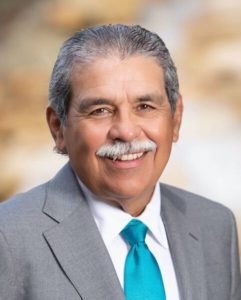
The superintendent of Dallas Independent School District—where he and his children all went to school—has overseen academic gains in reading and math over the last 15 years in which he has been superintendent off and on, with a strong academic-focused leadership team. But it’s his honorable leadership this school year in remarkably trying circumstances that makes him stand out. In defiance of Texas leadership, Hinojosa has mandated masks for all staff and students in his city’s schools—a move that, as he noted in this Kera News article, puts him at personal risk:
“If the lawsuits [fighting Texas Gov. Abbott’s ban on mask mandates] get overturned, I’ve got another tough decision to make. Do I continue to conduct civil disobedience and face a fine, or whatever other steps they could take against me? And at the same time, how can I follow a law that I believe will endanger my students, my staff, and my community? To me, that would be intellectually dishonest.
I think [being a big-city leader with a strong reputation] has something to do with the decision, the fact that I’ve been around. I’m not necessarily a militant, and I’m not a reactionary; I’m pretty quiet, I’m a solemn guy. But my reputation helps me to do this, and a lot of peers followed suit. If you didn’t have the street cred with the legislature, the community, the board and your staff, it would be a different situation.”
Ken Frazier
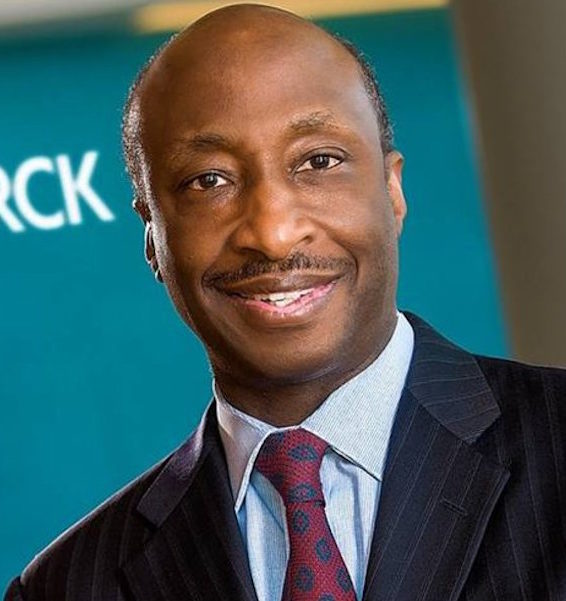
The North Philly native and graduate of Philly public schools recently retired (so he’s free?) as the first African American to serve as chairman and CEO of Merck Pharmaceuticals, an international company with 74,000 employees and a $13.6 billion research budget. So, well, he can run things.
He is also the kind of moral and inspiring leader we need. In 2017, after then Pres. Trump refused to speak out against the murderous Nazis in Charlottesville, Frazier was among the first to quit the president’s CEO Advisory Council in protest—just the latest in a lifetime of moral stands. He is co-chair of OneTen, a coalition of organizations working to upskill, hire and promote 1 million Black Americans into family-supporting jobs; and an outspoken critic of voter suppression laws being proposed and passed in Georgia and other states.
Plus, he knows the children he’d be serving because he was once one of them. As he said when being honored by the Urban Affairs Coalition a few years ago:
“Mine is the story of any kid growing up in North Philly. One of the most invidious lies told in our society is that children are fundamentally constrained by the circumstances in which they’re born and raised. It is a falsehood. I am evidence of one thing and one thing only: Kids will live up to or down to the standards of the grown ups around them.”
![]()
MORE ON SUPERINTENDENT BILL HITE
Will The School District Squander Its $1.1 Billion Stimulus Windfall?
Header photo: Dr. William Hite | By Jared Piper for Philadelphia City Council



